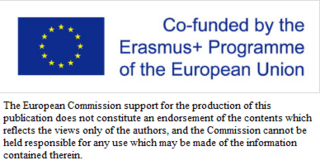"The EUCOPAS/Theseus workshop offered a unique international learning environment", said David Schäfer, doctoral student at the London School of Economics and Political Science (LSE) and winner of the Best Paper Award that has been distributed after the workshop. "Fellow PhD candidates come from all over the world including countries being rather remote to the study of the EU, such as Japan. This environment provides for a great social experience."
In his study, David Schäfer depicts the role of ideas for establishing the EU's banking union. He concludes that they were not only constitutive for the preferences of member states, but also used strategically as a bargaining tool in the interstate negotiations. Hence, ideas play a critical role in explaining EU banking union and also the broader EU crisis management, concludes the PhD student.
"I greatly appreciated both the feedback of my discussants and the informal chats over the two days", stated David Schäfer. "It's been a stimulating experience which provided me with very valuable comments on my research and how to tweak it further."
He valued the various academic background of the workshop participants and resulting different research topics and approaches of analysis. Christakis Georgiou, Université de Montpellier, for instance presented his analysis on the effects of the Eurozone crisis on the EU's economic governance structure. Camille Kelbel of Université Libre de Bruxelles investigated selection processes within the course of European elections and Femke Gremmelprez, Ghent University, reflected "Upholding democratic values within the EU: Pre- and post-accession".
Among further topics were "The European External Action Service (EEAS) as a diplomatic actor and its political significance in relation to the EU Member States' diplomacies" by Sonja Alapiha, University of Jyväskylä, or "Dynamics, actors and motives of European police cooperation centralisation in the fight against transnational organised crime" by Agathe Piquet, Université Panthéon-Assas Paris II.
